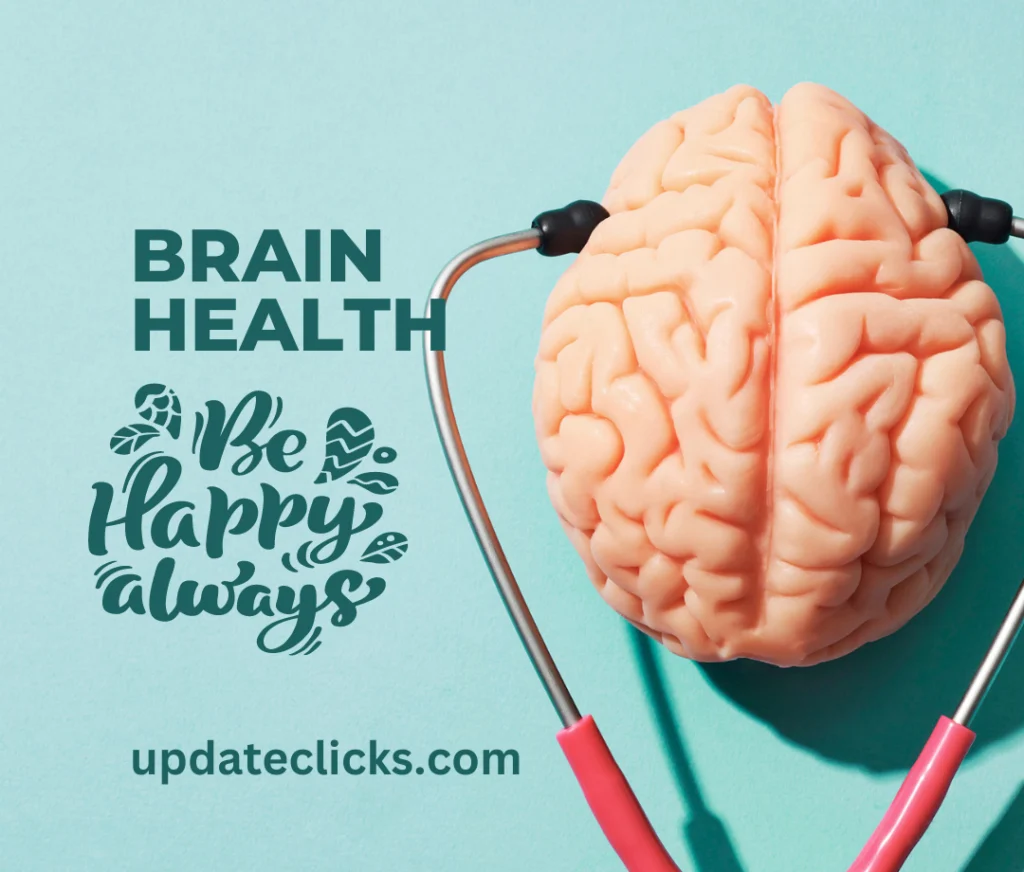
Sustaining healthy brain health is essential for general health and cognitive performance. The brain is the body’s command center, managing a wide range of physiological processes, such as emotions, movements, and ideas.
The Value of Good Brain Health
People who have a healthy brain are able to think clearly, make wise decisions, and carry out daily chores effectively. Although, It is also essential for controlling behavior, mood, and sleep cycles. For this reason, putting mental health first is crucial to leading a happy and successful life.
Factors Affecting Mental Health
Brain health is influenced by a number of variables, including environment, lifestyle, and heredity. There are numerous proactive actions people may take to support and improve brain function, Moreover, even while certain aspects of brain health, including inherited predispositions, are beyond our control.
Diet and Mental Well-Being
Food has a big impact on brain health since the brain needs nutrients all the time to function at its best. However, Eating a well-balanced diet full of whole grains, fruits, vegetables, lean meats, and healthy fats can supply the vital elements required for brain function.
Dietary Influence on Brain Function
Certain foods may have a favorable or unfavorable impact on cognitive performance, according to research. Antioxidant-rich meals, like berries and leafy greens, Moreover, have been associated with enhanced cognitive function and memory. Conversely, a diet heavy in processed foods and added sugars raises the possibility of cognitive decline and may damage brain function.
Crucial Elements for Healthy Brain Function
Certain nutrients, such as omega-3 fatty acids, vitamins B12, D, and E, and minerals like magnesium and zinc, are especially crucial for brain function. Numerous facets of brain function, However, including the synthesis of neurotransmitters, synaptic plasticity, and antioxidant defense, are supported by these nutrients.
Exercise and the Health of the Brain
Exercise is not just good for your physical health; it is also essential for keeping your brain healthy. Frequent exercise has been demonstrated to lower the risk of cognitive decline and neurodegenerative disorders, Although, increase mood, and improve cognitive performance.
Exercise’s Impact on the Brain
Exercise improves blood flow to the brain, supplying it with nutrients and oxygen needed for optimum performance. Additionally, it triggers the production of growth factors and neurotransmitters, Moreover, which support neuroplasticity—the brain’s capacity to adjust and transform in response to events.
Exercises That Are Suggested for Brain Health
To maintain total brain health, a mix of aerobic, strength, and flexibility workouts is advised. Moreover, Exercises that improve mental health and cognitive performance include yoga, tai chi, running, swimming, and brisk walking.
Brain Function and Mental Stimulation
Another important part of keeping the brain healthy is to do mentally engaging activities. Although, Mental stimulation challenges the brain and aids in maintaining cognitive function as we age, much as physical activity strengthens the body.
Taking Part in Cognitive Tasks
Playing musical instruments, reading, solving puzzles, learning a new language, and other mentally taxing activities can help maintain a sharp and flexible mind. These actions encourage the formation of new brain cells and strengthen existing connections between neurons.
Advantages of Mental Excitation
Studies indicate that regular participation in intellectually demanding activities can enhance one’s capacity for memory, attention, and problem-solving abilities. Additionally, it might postpone the development of age-related cognitive deficits and lower the likelihood of cognitive decline.
Good Sleep and Mental Wellness
A certain quantity of good sleep is necessary for maintaining the health of the brain and general wellbeing. The brain consolidates memories, processes information, In addiction, and carries out necessary maintenance functions that are critical for optimum cognitive performance when we sleep.
Sleep Is Essential for Proper Brain Function
Lack of sleep can have a significant negative impact on brain function, affecting emotional regulation, cognitive function, and decision-making. Extended sleep disruptions have been associated with a higher risk of neurological conditions like stroke and Alzheimer’s disease.
Stress’s Effects on the Brain
Cortisol, a hormone that can disrupt neurotransmitter balance and harm brain tissue, is released in response to stress. Extended periods of stress can cause the hippocampus, a part of the brain that regulates emotions and memory, to atrophy. This can result in mood disorders and memory issues.
Methods for Reducing Stress
Reducing stress and fostering a sense of peace and well-being can be achieved by engaging in relaxation practices such progressive muscle relaxation, yoga, meditation, and deep breathing. Taking up hobbies, going outside, and looking for social support are some useful stress-reduction techniques.
Social Interaction and Brain Function
The wellbeing of the brain and the maintenance of meaningful relationships depend on maintaining social connections. Social engagement lowers the risk of depression and cognitive decline while increasing cognitive function and brain activity.
Unique FAQs about brain health
What symptoms can indicate a compromised brain?
Diminished cognitive ability, mood swings, difficulties concentrating, and memory issues are some indicators of poor brain health.
How can I naturally enhance the health of my brain?
By leading a healthy lifestyle that includes a balanced diet, frequent exercise, mental stimulation, restful sleep, stress reduction, and social interaction, you may enhance your brain’s health organically.
Is age-related cognitive deterioration preventable?
Although age-related cognitive loss is common, you can slow down the decline and maintain cognitive function as you age by implementing brain-healthy practices and lifestyle modifications.
What part does heredity play in the health of the brain?
Genetics may have a role in an individual’s vulnerability to specific neurological disorders and cognitive decline. But lifestyle choices like nutrition, physical activity, and mental stimulation also have a big impact on brain health.
Conclusion
To sum up, maintaining good brain health is critical to general wellbeing and cognitive performance. People can maintain brain health throughout their lives by making healthy eating, physical activity, mental stimulation, sleep, stress reduction, social interaction, and other brain-boosting practices a priority. Through the integration of these techniques into everyday routines and the surmounting of typical obstacles, individuals can proactively maintain cognitive function and lead satisfying and mentally stimulating lives.